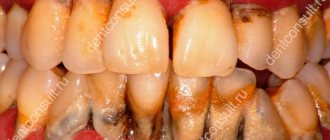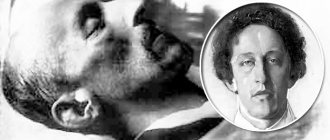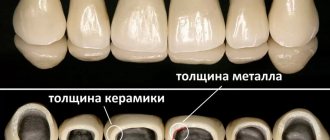Most people are not even aware that they have bad breath. Due to the structural features of the human nasopharynx and oral cavity, it is almost impossible to independently assess the freshness of breath. Since a person cannot smell his breath, its freshness can only be assessed by the reaction of others.
Bad breath can have one or more causes. It is important to determine whether bad breath is your constant companion or a temporary phenomenon.
The cause of temporary bad breath may be the consumption of certain foods. Usually, exotic spicy dishes, fatty sauces, onions, garlic, etc. have a negative effect on breathing. Thus, you can get rid of the smell simply by brushing your teeth. By performing regular oral hygiene after meals, you can completely eliminate the possibility of an unpleasant odor. If the appearance of bad breath is not associated with food consumption, there are several main reasons for its occurrence.
Where does bad breath come from after quitting smoking?
Bad breath, or, in other words, halitosis, in the case of people who have given up smoking, appears due to dysbiosis of the oral cavity. After an abrupt cessation of the intake of nicotine, hydrocyanic acid and tars, a restructuring of all metabolic processes occurs, including changes in the functioning of the gastrointestinal tract, and the oral cavity, intestines and respiratory tract begin to be populated by beneficial bacteria, while harmful microflora die. This process lasts no more than a few weeks and, with the right lifestyle, goes away without a trace.
Considering that smoking and healthy teeth are not compatible, it is not difficult to understand that an unpleasant odor can also be an alarming signal that requires a visit to the dentist. By settling on the surface of the teeth, tobacco tar destroys the enamel, causing caries and periodontal disease, the manifestation of which, in fact, is halitosis.
An unpleasant odor is also emitted by sputum secreted from the lungs and bronchi, which will create discomfort until the respiratory tract is completely cleared. And finally, in those who quit smoking, bad breath is explained by increased consumption of sweets as an alternative to cigarettes, which causes active breakdown of protein in the oral cavity.
Vasilenko V.V. Bad breath, or halitosis / www.gastroscan.ru. 2022
| Authors: Vasilenko V.V. |
Bad breath, or halitosis
| The myth is that bad breath and bad breath are usually associated with a stomach condition. Bad breath in the morning is due to the fact that salivation decreases sharply at night. |
Regardless of what exactly is the cause, saliva, or rather a lack of it, is largely to blame for bad breath.
In the human mouth there are a lot of bacteria that feed on protein contained in food debris and dying tissue. These bacteria produce foul-smelling gases, the most unpleasant of which are hydrogen sulfide (which smells like rotten eggs) and methyl mercaptan (which smells like manure). Bacteria in the mouth thrive in the absence of air. Saliva, rich in oxygen, actively prevents their reproduction. An unpleasant odor, a common cause of discomfort in communication, occurs when the flow of saliva slows down. This happens, for example, in a dream. So there is hardly a daredevil who claims that he is unfamiliar with morning breath. Excitement, hunger, pronouncing a long monologue, breathing through the mouth - all this dries out the oral cavity and leads to a stench. This not very pleasant feature has been noticed (although not yet explained) under stress.
Amor tussisque non celantur. “You can’t hide love and a cough.”
A decrease in saliva flow inevitably occurs with age. This is why babies have clean breath because they produce a large amount of saliva and have relatively few bacteria in their mouths. Older people tend to have bad breath more often than younger people.
Until recently, it was believed that if the smell has no obvious cause, then it is the result of periodontitis, inflammation of the tissue surrounding the roots of the teeth. Plaque deposited on the teeth can lead to fusion of the gum with the tooth and, as a result, to the cessation of oxygen access. This provides ideal conditions for anaerobic (i.e., does not require oxygen) bacteria, which contribute to the development of gum disease and cause the odor associated with such conditions. However, studies have shown that most people who suffer from bad breath do not have gum disease.
Bacteria that produce sulfur (after all, it is what smells so “wonderful”) actively multiply on the upper part of the tongue, settling between the microscopic papillae under a layer of plaque and mucus. With regular tooth brushing, these colonies cannot be completely eliminated. The papillae of the tongue are like a fleecy carpet, and you need to clean between them, getting to the very bottom. A clean tongue is a pink tongue! A white coating on it means that millions of bacteria continue to colonize their favorite territory.
The variety of diseases is truly endless. Pliny the Elder
If bad breath appears only in the morning, then getting rid of it is as easy as shelling pears - just have breakfast. When you eat or drink, saliva begins to be produced, which washes away most of the bacteria.
The bad odor caused by dryness can be completely eliminated by simply brushing your teeth, during which many bad-smelling bacteria are destroyed. It’s a good idea to clean your tongue, palate and cheeks at the same time. It is very important not to ignore the toothpick to remove food particles and bacteria stuck between the teeth. For those who suffer from chronic dry mouth, it is helpful to always have chewing gum, lozenges, and a bottle of water or juice on hand. Lemon water makes the salivary glands work harder.
To digest knowledge, you need to absorb it with appetite. Anatole France
Rinses that claim to kill harmful bacteria, unfortunately, somewhat exaggerate their importance, since most of the “objects” are reliably protected by a thick layer of plaque and mucus. If the rinse contains alcohol (which is most of the time), your mouth will become dry and your breath will smell worse. As an alternative, pharmacies offer a number of effective chlorhexidine-based products for self-treatment of the oral cavity.
And yet, the most inexpensive but effective remedy for combating bad odor that originates in the mouth is a hypertonic salt solution (1 tablespoon of salt per glass of water). Precipitation even after stirring means that the solution is saturated, i.e. hypertensive. The solution must be freshly prepared for each use. It works as follows:
- washes and irrigates the mucous membrane, dissolves mucus;
- reduces swelling and inflammation of the mucous membrane;
- dehydrates bacteria, which stop multiplying and then die;
- penetrates into the lacunae of the tonsils and realizes the same effects there.
Everyone knows that garlic causes a strong odor from the mouth.
But few people realize that for this smell to appear, it is not at all necessary to eat garlic - it “works” without even getting into the stomach: for example, when rubbing the heel with garlic, the garlic penetrates the pores, enters the lungs and causes... bad breath. Thus, the garlic “fragrance” does not come from the stomach. The sulfur compounds contained in garlic enter the blood, from where they enter the lungs and, with exhaled air, onto the interlocutor. In the same way, alcohol and onions penetrate into the exhaled air through the blood. By smelling, grated garlic expels harmful worms; it also expels worms and worms, if you take the medicine, from the womb. Odo from Mena “On the properties of herbs”, XI century.
It is impossible to completely and quickly eliminate the smell caused by food. So you shouldn’t even try to overpower it with mint or parsley. They won’t be able to help, but they will worsen your breathing, because a mixture of different smells only turns into incense in the hands of professionals.
Only time and a maximum of liquid (water or tea), which should be drunk during a “meal with consequences,” can save the situation.
Special rinses, mints, and mouth deodorants, which are usually used before important events, are actually practically useless. Their effect is to mask rather than prevent or remove odor. The pleasant aroma of these products interrupts the unpleasant amber for no more than an hour. This type of halitosis is called physiological. However, there are also diseases that provoke pathological halitosis.
Dry mouth is often a symptom of illness. Therefore, as in other similar cases, you need to start by identifying and eliminating the cause, not the effect. For example, with a hiatal hernia, the stomach protrudes through the diaphragm into the chest cavity, and acidic juices can regurgitate into the esophagus, causing distorted odors of the food to become apparent when exhaling.
Doctor: “Are you eating well, sir?” Monsieur de Poursonyac: “Yes, and I drink even better.” Doctor: “That’s what’s bad. Such a strong desire for cold and damp indicates internal heat and dryness.” Moliere
Respiratory tract infections ruin your breath in many ways. Firstly, when a person begins to breathe through the mouth with a stuffy nose, a kind of incubator is formed in the mouth for the proliferation of bacteria. Secondly, some respiratory diseases are caused by bacteria, which themselves produce sulfur gases. In these cases, it is advisable to consult a doctor about the possible prescription of antibiotics.
In addition, antiallergy medications, decongestants, antidepressants, anti-anxiety medications, and some hypertension medications reduce saliva flow. The result is not long in coming.
Fans of a slim figure run the risk of developing bad breath. Two factors contribute to this: dry mouth and the release of acetone, which occurs during the breakdown of fat in the body. If extra pounds interfere with your life, then when going on a diet, you need to strengthen control over your oral hygiene and drink as much fluid as possible.
You can especially sympathize with some women: their bad breath is a harbinger of menstruation. This may be due to hormonal changes leading to an increase in the number of bacteria in the mouth. In such cases, only careful oral hygiene can help.
V.V. Vasilenko. Sixty essays on digestion (recommendations from a gastroenterologist to patients) Back to section
Possible consequences
Bad breath is not only an annoying phenomenon, but also an alarming symptom of a number of serious diseases. To rule out their presence, you should definitely consult a doctor, take a comprehensive blood test and undergo a full examination by specialized specialists.
If you ignore halitosis, artificially masking its presence with menthol aerosol and other tricks, it is easy not to notice how an ailment that could be defeated in no time or even prevented will go into a chronic stage and become a companion for life. In addition, aesthetic dentistry is not cheap at all, and purchasing implants instead of your own, healthy teeth is an extremely expensive and dubious pleasure.
How to get rid of unpleasant odor after smoking
There is only one way to get rid of an unpleasant odor after quitting smoking - an integrated approach, including cleansing the lungs and bronchi, dental treatment and normalizing the functioning of the stomach.
So, first of all, it is necessary to do inhalations with disinfectant compounds that help remove from the body the layer of tar and other products of tobacco combustion that have settled on the mucous membranes.
Secondly, in the first time after quitting cigarettes, it is important to observe oral hygiene more carefully, not forgetting to brush your teeth with a good paste with a high calcium content after every meal and even drink.
Thirdly, you should be more selective in matters of nutrition, giving preference to vegetables and fruits, and categorically refusing hot, spicy foods and saturated sugars. And, to complete the set of measures, those who quit smoking need to gargle and gargle with herbal solutions.
Conventional rinses will not work here, since in this case it is important not just to deodorize the mouth, but to effectively disinfect it. Dentists recommend that anyone who, having given up smoking, fears for their teeth and suffers from bad breath, during the first years after quitting tobacco, should visit a doctor for preventive purposes once every two to three months, instead of the usual twice a year.
The effect of tobacco smoke on the oral organs, or another reason to quit smoking
06.11.2018
Smoking is a common bad habit, despite public beliefs about its harmful effects on all organs and systems of the body. Smoking causes a huge number of diseases, such as: oncology, emphysema, myocardial infarction, stroke, angina pectoris, stomach ulcers, etc. The list of diseases caused by smoking can be continued for a very long time. In our article, we will tell you what exactly happens to the organs of the oral cavity during systematic contact with tobacco smoke.
The oral cavity is primarily exposed to harmful substances contained in cigarettes. There are more than 4,000 of them! For this reason, the negative consequences of smoking immediately manifest themselves in the oral cavity.
It is possible to distinguish between the aesthetic consequences of smoking and the consequences that cause diseases of the oral cavity.
Aesthetic ones include the formation of dark brown plaque on the surface of the teeth, as well as bad breath.
Plaque on teeth is formed due to the deposition of cadmium sulfate, which is a combustion product, on the teeth. And when interacting with salivary proteins, it actively adheres to the surface of tooth enamel. At the same time, the high temperature, which also occurs in the oral cavity when smoking, finally seals these dental plaques, thereby depriving the patient of the opportunity to clean the plaque on his own.
The most common location is the inner surface of the mandibular incisors; where the exit of the duct of the sublingual salivary gland is located.
However, the more a person smokes and the lower the level of hygiene, the greater the area of distribution of dark plaque, up to the complete overlap of the crown part of the tooth.
An unpleasant odor (halitosis) is also caused by the accumulation of combustion products on the root of the tongue, soft plaque and on the surface of the mucous membranes. It should be noted that these conditions are quite favorable for specific gas-forming bacteria, the waste products of which are sulfur compounds. All this together leads to the formation of bad breath. Smoking patients should undergo professional oral hygiene every 3-4 months, always performing remineralizing procedures.
As for the consequences of smoking causing oral diseases , it should be noted that this is a much more serious problem. The thing is that the mucous membrane of the oral cavity is lined with very delicate and vulnerable epithelium. And systematic smoking has a traumatic effect on the mucous membrane. This is due precisely to those toxic substances and resins that were mentioned earlier, as well as to exposure to high temperatures.
The most common diseases of the oral cavity, the formation of which is associated with smoking: gingivitis, periodontitis.
Tobacco smoke has a toxic effect on the ligaments of the tooth. First, gingivitis (inflammation of the gums) develops, and then periodontitis. Patients usually come in with significant bone defects, when noticeable tooth mobility appears. This is due to the fact that the substances included in tobacco products cause spasm of peripheral vessels, thereby disrupting the normal trophism of tissues, which causes inflammation. As a rule, it proceeds without pain and bleeding (this is due to the same vascular spasm). This is a common cause of tooth loss.
- Smoker's stomatitis.
This diagnosis is usually made to patients with a newly acquired habit. The source of inflammation is usually localized in the palate, since it is the palate that is exposed to hot toxic smoke. Stomatitis is accompanied by pain and burning sensations in the area of the damaged area.
- Xerostomia.
Characterized by dry mouth associated with insufficient salivation. Xerostomia is usually observed in patients with a smoking history of more than 5 years. Dry mouth is associated with the fact that tobacco smoke spasms and blocks the work of small salivary glands throughout the oral cavity, and therefore a sufficient amount of saliva ceases to be produced. Patients complain of a burning sensation in the mouth, discomfort when eating, and dry mucous membranes. With xerostomia, caries begins to progress completely on all teeth, as the pH balance of the oral cavity is disturbed and an acidic environment is maintained.
- Melanosis of the mucous membrane.
This disease manifests itself in the form of dark brown spots on the gums and on the mucous membrane of the cheeks and palate. Complaints are often only aesthetic, but in rare cases these spots can cause discomfort in the form of severe itching; cases of malignancy (malignant course) of spots, with a course similar to melanoma, have also been described.
Further, diseases of the oral cavity can be divided into two categories: accompanied by the formation of defects in the mucous membrane (minus tissue): erosions and ulcers; or the formation of plus tissue. In the second case, such diagnoses as leukoplakia (growth of the keratinized layer of the mucous membrane), cancer of the lip, tongue, and larynx are possible.
It is worth noting that long-lasting ulcers, erosions, as well as leukoplakia, according to the classification of diseases, belong to precancerous diseases, which at any time can transform into a malignant form.
Treatment of all the above-mentioned diseases, without eliminating the cause that caused the disease (smoking), will be ineffective, if not bring no results at all. If cancer is diagnosed, then treatment consists of surgery, excision of the affected tissue and chemotherapy. All this is accompanied by very strong stress and a deterioration in the patient’s quality of life.
Prevention of these diseases is very simple - you need to completely stop smoking.
Summarizing all of the above, a conclusion suggests itself, from which it follows that the price of smoking is too high, and you should not expose yourself to unjustified risks.
By the way, today is a great day to quit smoking!
What not to do
Often those who quit smoking try to mask their bad breath rather than fight it. This behavior not only aggravates the situation, but is also extremely dangerous. Excessive consumption of candies and chewing gum will lead to the loss of existing fillings in the teeth and will cause the development of caries.
By ignoring the problem, you can face the social problem of a lack of communication and forced isolation, and, by returning to an addiction, you can even make the most serious mistake in your life, nullifying all the efforts made to defeat addiction. It’s easy to get rid of bad breath if you approach the problem thoroughly and fight not its manifestation, but the true causes.








